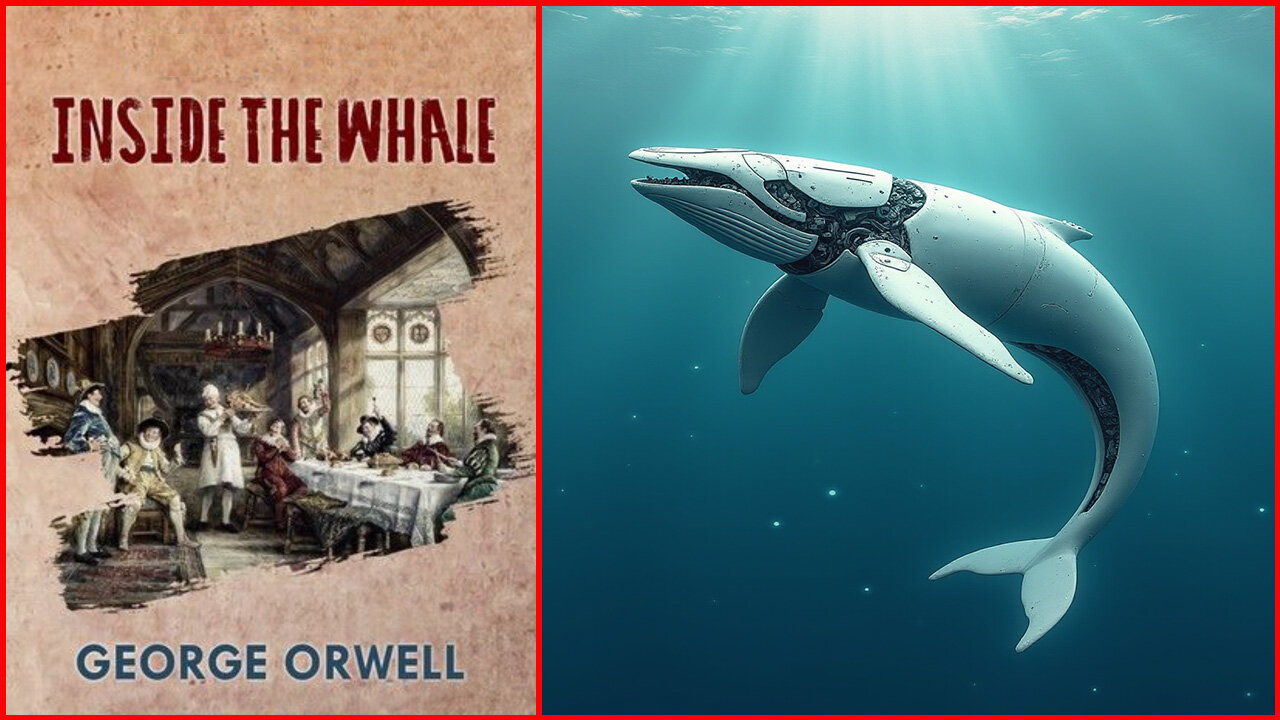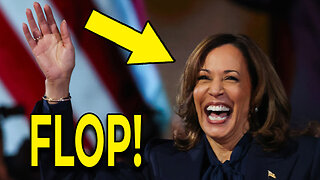Premium Only Content

'Inside the Whale' (1940) by George Orwell
This essay was first published in 'Inside the Whale and Other Essays' in March, 1940.
Orwell explores the role of literature and the writer's place within society, particularly in times of social and political upheaval. The essay is divided into three parts, with Orwell discussing different literary figures, movements, and the impact of historical events on literature.
Part 1 - Critique of Henry Miller's Tropic of Cancer: Orwell starts by analyzing Tropic of Cancer by Henry Miller, which he sees as a significant departure from the politically charged literature of the 1930s. He describes Miller’s work as introspective, focusing on the individual's inner experience without concern for broader social or political issues. Orwell admires Miller's apolitical stance, suggesting that Tropic of Cancer represents a turning inward -a retreat into a personal, almost passive acceptance of life, similar to being 'inside the whale'.
Part 2 - Literature and Political Commitment: Orwell examines the contrast between the political engagement of many 1930s writers and Miller's withdrawal from politics. He discusses the pressures that writers felt to address issues like fascism, communism, and the Spanish Civil War. Orwell critiques the tendency of many writers to adopt political stances, arguing that their work often became propaganda, sacrificing literary quality for political purposes. He emphasizes that while the political climate of the time made it difficult for writers to remain neutral, Miller's retreat from these concerns was a deliberate choice, representing a different approach to literature.
Part 3 - The Role of the Writer: In the final part, Orwell reflects on the broader role of writers and the nature of literature in society. He explores the idea that being "inside the whale" means accepting the world as it is and finding meaning in personal experience rather than seeking to change society. Orwell suggests that such a stance has a certain value, especially during periods of crisis when direct political engagement might be futile. However, he remains ambivalent about this perspective, acknowledging that while it allows for artistic freedom, it can also be seen as a form of escapism.
Overall, Inside the Whale is Orwell’s meditation on the relationship between literature and politics, and the tensions between artistic freedom and social responsibility. He uses the metaphor of Jonah inside the whale to represent a state of detachment from the outside world, where a writer may observe life without necessarily engaging with it. While Orwell respects Miller's apolitical approach, he grapples with the complexities of maintaining such a stance in a world increasingly shaped by conflict and ideology.
-
 1:19:29
1:19:29
Game On!
12 hours ago $1.79 earned8,000 Subscriber Celebration Stream!
6.93K -
 28:30
28:30
Degenerate Jay
14 hours ago $2.25 earnedThe Rejected 007 Quantum Of Solace Ending That Would Have Changed James Bond
16.6K5 -
 11:37
11:37
ARFCOM Reviews
13 hours ago $1.05 earnedNew Budget Comp'd Carry || Canik MC9 PRIME
10.4K4 -
 8:22
8:22
Rethinking the Dollar
16 hours agoSilver vs CBDCs: The Battle for Financial Freedom
14.7K5 -
 55:15
55:15
MTNTOUGH Fitness Lab
17 hours agoTJ Dillashaw: Embracing Fear as a Privilege | MTNPOD #112
8.86K2 -
 12:24
12:24
T-SPLY
22 hours agoKamala’s COMEBACK FLOPS as Dems DITCH Her!
10.3K10 -
 47:42
47:42
Steph & Kayls
21 hours ago $0.40 earnedReflecting On How Being Spicy Creators Changed Our Relationship, Life And Bank Account | Ep. 2
7.83K4 -
 7:03
7:03
DropItLikeItsScott
23 hours ago $0.75 earnedFosTech Drone Predator Pistol Suppressed
12.8K -
 3:31:01
3:31:01
FreshandFit
11 hours agoAfter Hours w/ Dan Cates
116K150 -
 1:37:17
1:37:17
Badlands Media
11 hours agoBaseless Conspiracies Ep. 128: The Accelerationist Cults Grooming Kids into Terrorism with BX
154K47